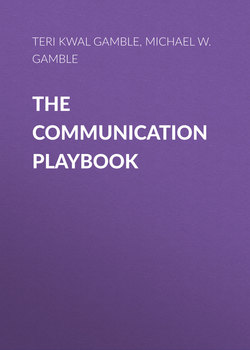Читать книгу The Communication Playbook - Teri Kwal Gamble - Страница 189
На сайте Литреса книга снята с продажи.
Words Announce Our Attitudes
ОглавлениеIf we like an old piece of furniture, we might refer to it as an antique. If we don’t like it, we’d probably call it a piece of junk. Words broadcast attitudes. For example, a few years ago, PETA (People for the Ethical Treatment of Animals) asked the Federal Trade Commission to revise the fur label phrase “animal producing the fur” to read “animal slaughtered for the fur.”22
The word euphemism is derived from the Greek term meaning “to use words of good omen.” When we use a euphemism, we substitute a pleasant term for a less pleasant one. Euphemisms help conceal a communicator’s meaning by making the message delivered appear more congenial than it actually is. Employees who lose their jobs are “de-hired,” undergo a “vocational relocation,” are left “indefinitely idling,” experience a “realignment” or “constructive dismissal,” or are “freed up for the future.” It seems that only on The Apprentice did someone actually utter the phrase “You’re fired!”
When the environment became a political issue, political strategist Frank Luntz advised using the term climate change in place of global warming because “while global warming has catastrophic implications attached to it, climate change sounds like a more controllable and less emotional challenge.”23 He also suggested using the word conservationist instead of environmentalist because the former conveys a “moderate, reasoned, common sense position,” while the latter has the “connotation of extremism.”24 Of late, some have identified the term alt-right as dangerous, believing that it is a euphemism for an extremist group that is racist, anti-Semitic, and antifeminist, with roots in White nationalism and White supremacy.25 Do you agree?
